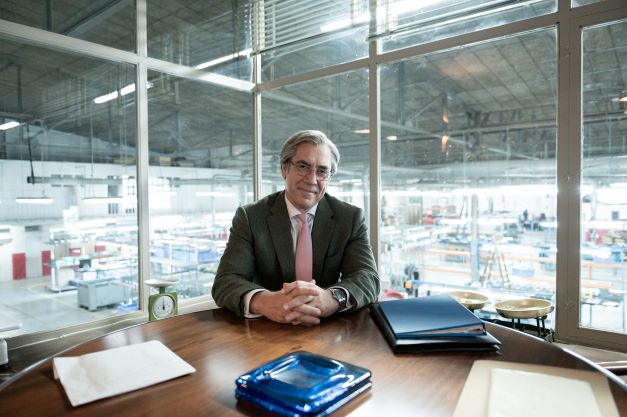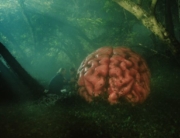![]() Julio Blanco (Javier Bardem) owns a factory just outside Madrid that produces industrial scales. He is always eager to use the image of a scale in conversation, whether to discuss how Blanco Scales makes minor adjustments to achieve the perfect balance (perhaps someone must be fired) or to seduce a young female intern. Blanco, who is married but has no children of his own, is quick to refer to his employees as his offspring, and to tell them that any of their problems might as well be his. His office is ideally situated to look over them, high above the floor where shipments are organized and arranged, with windows that face both his office mates and his employees below.
Julio Blanco (Javier Bardem) owns a factory just outside Madrid that produces industrial scales. He is always eager to use the image of a scale in conversation, whether to discuss how Blanco Scales makes minor adjustments to achieve the perfect balance (perhaps someone must be fired) or to seduce a young female intern. Blanco, who is married but has no children of his own, is quick to refer to his employees as his offspring, and to tell them that any of their problems might as well be his. His office is ideally situated to look over them, high above the floor where shipments are organized and arranged, with windows that face both his office mates and his employees below.
Windows are, in fact, a recurring motif in this dark comedy. Through them, Blanco often surveys others without hearing them. This happens not only in his office—and not only from his perspective. It is one of many devices in this film that illustrates the gap between Blanco’s world and what lies beyond it. His home is pristine, as is his company headquarters, yet much else in their immediate surroundings is gray, fallen, wrecked. And many things are not quite what they seem.
The action takes place in the week leading up to a visit from a committee that is to decide whether the company will receive an award in business excellence. During this time, many things go wrong, which could jeopardize the company’s chances. Among them: Jose (Óscar de la Fuente), who has recently been laid off, camps out in a field across the driveway with his children, shouting badly rhyming slogans in protest. Miralles (Manolo Solo), an old friend of Blanco’s who runs the production department, begins spiraling out of control when he suspects his wife is having an affair. Liliana (Almudena Amor), a new young intern whom Blanco promptly makes the time to seduce, harbors a secret that could threaten his image, while Fortuna (Celso Bugallo), a factory mechanic, asks for Blanco’s help in getting his son out of jail for attacking a group of Arabs. Blanco attends to each of these situations, sometimes frantically, crossing many boundaries, hurting many people, doing everything he can to come out the other side in one piece.
There is almost no one to root for here who is not scheming or immoral (José being a notable exception). This makes their charisma and the humorous tone throughout all the more disquieting. If some of the symbols are a little heavy-handed (the scales symbolizing justice in an immoral world), the movie does not linger on them. It is much more interested in letting its characters and situations speak for themselves. As such, the film is sort of a macabre fugue and yields much to the viewer as we watch the story’s various threads play off, compliment, and contrast one another. Bardem’s work is beautifully sustained, a perfect blend of charisma, cunning, sliminess, and occasionally the pathetic. In its spriteliness and verbosity, his performance serves as a remarkable contrast to the near silent killer he is most famous for in No Country for Old Men.
One could argue that this film does not break new ground. It serves to reveal and send up how corrupt and compromised the business mindset, and the larger culture, are. Nevertheless, The Good Boss is a fine and engaging portrait of the lying and hypocrisy of the corporate world and the violence on which it rests. It is all the more affecting that, in spite of all the talk of justice and her scales, we never see justice triumph.







Leave A Comment